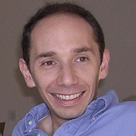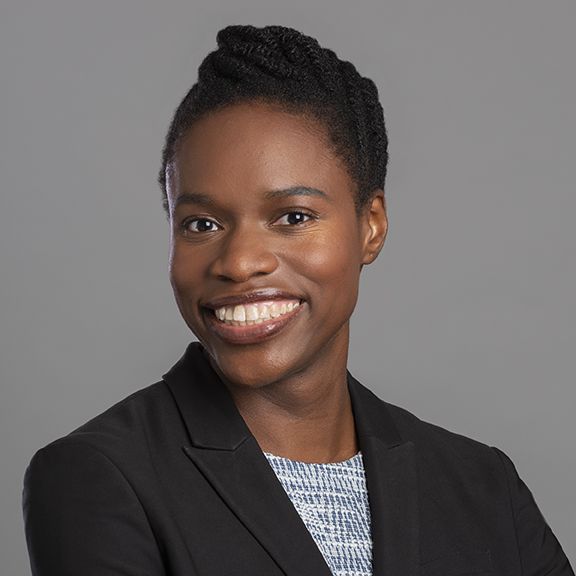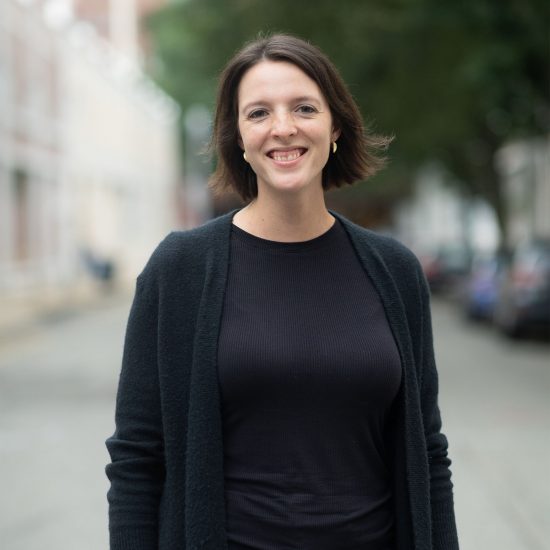2024 Research & Awards
CDS research by its nature is cross-disciplinary. Reflecting on 2024, this highlights faculty achievements at the intersection of computing and two disciplinary clusters—recognized through prestigious publications and awards. The first is focused on biomedical sciences — biology, bioinformatics, and medicine — whereas the second focuses on law and society. Each cluster has multiple independent threads of work that represent collaborations between various CDS professors and researchers across BU’s schools and colleges. The featured research presented is a glimpse into the exciting and diverse range of studies taking place at CDS.
Biomedical Sciences
 CDS Assistant Professor Brian Cleary co-authored the paper “Scalable genetic screening for regulatory circuits using compressed Perturb-seq” in the Nature Biotechnology journal. This paper addresses the problems of exponentially growing combinations when trying to understand the function and interactions of genes and allows a much broader analysis of relevant genes while working within a modest budget of available cells to test. This work is motivated by high physical resources of previous techniques and applies compressed sensing and sparse signal recovery techniques to address them. The new framework enables new scales of interrogation for a foundational method in functional genomics, with high potential impact on genetic screening for diseases. The new framework was demonstrated with a study of immune regulatory functions identifying a new pair of genes without prior immune annotations that was highly correlated with downstream effects and another gene that appeared to inhibit the pair.
CDS Assistant Professor Brian Cleary co-authored the paper “Scalable genetic screening for regulatory circuits using compressed Perturb-seq” in the Nature Biotechnology journal. This paper addresses the problems of exponentially growing combinations when trying to understand the function and interactions of genes and allows a much broader analysis of relevant genes while working within a modest budget of available cells to test. This work is motivated by high physical resources of previous techniques and applies compressed sensing and sparse signal recovery techniques to address them. The new framework enables new scales of interrogation for a foundational method in functional genomics, with high potential impact on genetic screening for diseases. The new framework was demonstrated with a study of immune regulatory functions identifying a new pair of genes without prior immune annotations that was highly correlated with downstream effects and another gene that appeared to inhibit the pair.
In the fall of 2024, Professor Cleary was awarded the Shibulal Family Career Development Professorship. This prestigious award was established by BU Trustee S. D. Shibulal (MET’88) and honors faculty with exceptional records and notable scholarly potential. Recipients are acknowledged for their extraordinary achievements in their fields, innovative research and teaching methods, and impactful, original scholarship that could transform their disciplines. Cleary’s work will focus on developing theory and computational-experimental methods to identify basic units of organization in cells and tissues to better understand how they evolve, change throughout development, and go awry in disease. The impact is to obtain a better understanding of the nature of complex living systems. Read more.
 Assistant Professor Ana Fiszbein, Biology in the College of Arts & Sciences (CAS) and CDS Faculty Fellow, won a CAREER Award from the NSF, which includes a $1.3 million grant award for her project “Uncovering the Role of Splicing Factors in Transcriptional Regulation.” This work seeks to understand how splicing factors interact with the expression of human genes. In Fiszbein’s words, “the findings of this project will contribute to the development of advanced computational tools capable of predicting gene regulation and designing molecules to control gene expression with therapeutic purposes.” The project also has a significant outreach component at the middle school and high school levels encouraging broader interest in computational biology and statistics.
Assistant Professor Ana Fiszbein, Biology in the College of Arts & Sciences (CAS) and CDS Faculty Fellow, won a CAREER Award from the NSF, which includes a $1.3 million grant award for her project “Uncovering the Role of Splicing Factors in Transcriptional Regulation.” This work seeks to understand how splicing factors interact with the expression of human genes. In Fiszbein’s words, “the findings of this project will contribute to the development of advanced computational tools capable of predicting gene regulation and designing molecules to control gene expression with therapeutic purposes.” The project also has a significant outreach component at the middle school and high school levels encouraging broader interest in computational biology and statistics.
 Professor Daniel Segrè, Bioinformatics (CDS), Biology and Physics (CAS), and Biomedical Engineering (ENG), was named a fellow by the American Association for the Advancement of Science (AAAS) for his contributions to studying and decoding these microbial ecosystems and for testing ways to shape them to improve human and environmental health. When speaking about the award, Segrè said, “I strongly believe in the value of basic science and in the opportunities that arise when scientists with completely different backgrounds get together and ask each other what seem naive questions about other fields or come up with creative questions driven by curiosity. I hope people will see some of this in our work.”
Professor Daniel Segrè, Bioinformatics (CDS), Biology and Physics (CAS), and Biomedical Engineering (ENG), was named a fellow by the American Association for the Advancement of Science (AAAS) for his contributions to studying and decoding these microbial ecosystems and for testing ways to shape them to improve human and environmental health. When speaking about the award, Segrè said, “I strongly believe in the value of basic science and in the opportunities that arise when scientists with completely different backgrounds get together and ask each other what seem naive questions about other fields or come up with creative questions driven by curiosity. I hope people will see some of this in our work.”
 Finally, Associate Professor Vijaya Kolachalama, Medicine (MED), and affiliated faculty in CDS and in Computer Science (CAS), published the paper “AI-based differential diagnosis of dementia etiologies on multimodal data” in Nature Medicine about diagnosing dementia using multimodal data. In this study, an AI model was built taking in a wide variety of clinical data — patient history, medication use, neuroimaging, and many others — and using that to diagnose specific etiologies or causes of dementia. This problem is challenging due to significant symptom overlap across ontologies but is critical in selecting appropriate personalized management strategies for dementia. The models built had very high accuracies and could handle some challenging cases with multiple ontologies while model validation against known biomarkers showed a close agreement between the model predictions and known factors in the underlying biology.
Finally, Associate Professor Vijaya Kolachalama, Medicine (MED), and affiliated faculty in CDS and in Computer Science (CAS), published the paper “AI-based differential diagnosis of dementia etiologies on multimodal data” in Nature Medicine about diagnosing dementia using multimodal data. In this study, an AI model was built taking in a wide variety of clinical data — patient history, medication use, neuroimaging, and many others — and using that to diagnose specific etiologies or causes of dementia. This problem is challenging due to significant symptom overlap across ontologies but is critical in selecting appropriate personalized management strategies for dementia. The models built had very high accuracies and could handle some challenging cases with multiple ontologies while model validation against known biomarkers showed a close agreement between the model predictions and known factors in the underlying biology.
Law and Society
CDS affiliates Ran Canetti, professor of Computer Science (CAS), and Stacey Dogan, professor of law (LAW), were co-chairs of the 3rd ACM Symposium on Computer Science and Law program committee. CDS Associate Professor Mayank Varia was the local arrangements chair of the symposium. The symposium aimed to foster a community of scholars, lawyers, and computing professionals.

CDS Assistant Professor and Associate Professor of Law (LAW), Ngozi Okidegbe published an academic article regarding topics of technology in law, criminal process, data in legislation, and algorithms in governance. Okidegbe was also awarded the prestigious Derrick A. Bell Jr. Award from the Association of American Law Schools Minority Groups Section, which recognizes a junior faculty member who, through activism, mentoring, colleagueship, teaching, or scholarship, has made an extraordinary contribution to legal education, the legal system, or social justice.

CDS Assistant Professor Allison McDonald was recognized by the Association for Computing Machinery’s 2023 Human-Computer Interaction Conference on Human Factors in Computing Systems for her paper published on a study of sexual content creators using subscription websites in the digital economy. McDonald’s work investigates the motivations of online sexual content creators and actively tries to make sharing such content safer for all parties involved. McDonald additionally published a paper with CDS PhD student Heila Precel and others, “A Canary in the AI Coal Mine: American Jews May Be Disproportionately Harmed by Intellectual Property Dispossession in Large Language Model Training,” looking into the disproportionate usage of intellectual property of Jewish Americans. They noted that such skewed usage likely applies to other minorities, too.

CDS Chair of Academic Affairs and Computer Science Professor Mark Crovella's work includes investigating a new project backed by a first-of-its-kind NSF and Department of Energy program. The National Artificial Intelligence Research Resource (NAIRR) Pilot aims to bring a new level of scrutiny to AI’s peril and promise by giving 35 projects, including Crovella’s, access to advanced supercomputing resources and data. Read the full story here.

